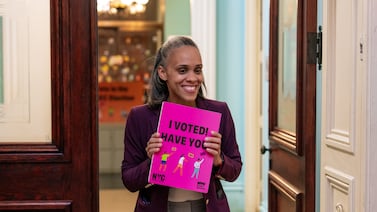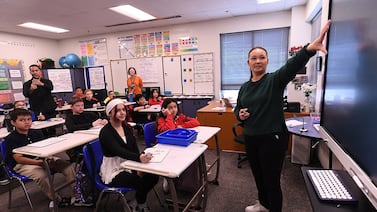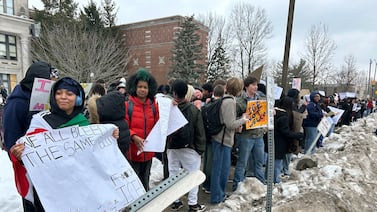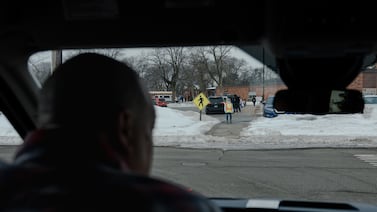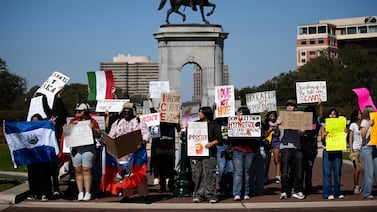Sign up for Chalkbeat Colorado’s free daily newsletter to get the latest reporting from us, plus curated news from other Colorado outlets, delivered to your inbox.
Colorado voters have overwhelmingly approved of Proposition LL, which would help fund the state’s universal free school meals program.
The Associated Press called the race in favor of Proposition LL. The ballot measure is one of two that will increase funding for the Healthy School Meals for All program, which provides free breakfast and lunch to students at participating schools. Proposition MM also passed.
Proposition LL will allow Colorado to keep millions in excess revenue raised for the program instead of providing refunds to certain taxpayers.
The free meals program has become more popular and therefore more expensive than expected. Money from Proposition FF, the 2022 ballot measure that created Healthy School Meals for All, hasn’t raised enough annual revenue to keep up with those expenses.
Advocates on Tuesday night said their passage is a victory for children’s well-being.
Ana Bustamante, whose organization Save the Children Action Network supported both measures, said no student should have to be hungry at school. She said the funding will help sustain the program’s long-term success and ensure schools can continue to offer meals that fuel student learning.
“Not only are we making sure students eat healthy, fresh meals,” she said, “but we’re also supporting Colorado farmers and ranchers.”
In a news release, the Keep Kids Fed campaign said the victory means better grades, higher graduation rates, and better outcomes for Colorado students. The organization lists 110 organizations across the state as part of its committee, including hospitals, county governments, churches, teachers associations, and community advocacy organizations.
Colorado Democratic Party Chair Shad Murib said in a statement that Colorado voters sent a message that no student should have to learn on an empty stomach.
“Voters chose compassion, common sense and Colorado values while saving families money,” he said.
Since Proposition FF passed in 2022, the state has collected millions more than budget officials have estimated, triggering refunds to households that make more than $300,000 a year.
Lawmakers placed Proposition LL before voters to exempt money for the school meals program from the state’s Taxpayer Bill of Rights, or TABOR, which requires Colorado to provide tax refunds if money collected from a voter-approved ballot measure exceeds state estimates.
For example, state officials had estimated Proposition FF would collect $100.7 million for the program in the 2023-24 year. Instead, the state collected about $112 million, or about $11.3 million more than expected.
Instead of refunding the money from that tax year, lawmakers asked permission through Proposition LL to keep that $11.3 million, plus $1.1 million in interest, to help fund the free school meals. Proposition LL would also affect future year tax collections and rebates subject to TABOR.
Without the money generated from the two ballot measures, about 382 of the 1,803 schools participating wouldn’t have been able to serve free meals starting in January. Families at those schools would have needed to either pay for meals or fill out federal forms to get free or reduced price meals.
Jason Gonzales is a reporter covering higher education and the Colorado legislature. Chalkbeat Colorado partners with Open Campus on higher education coverage. Contact Jason at jgonzales@chalkbeat.org.

